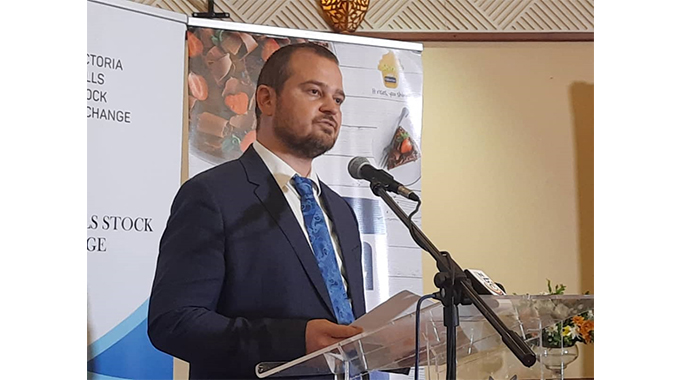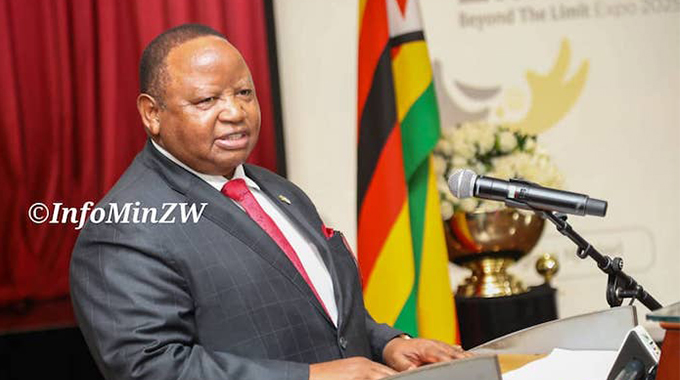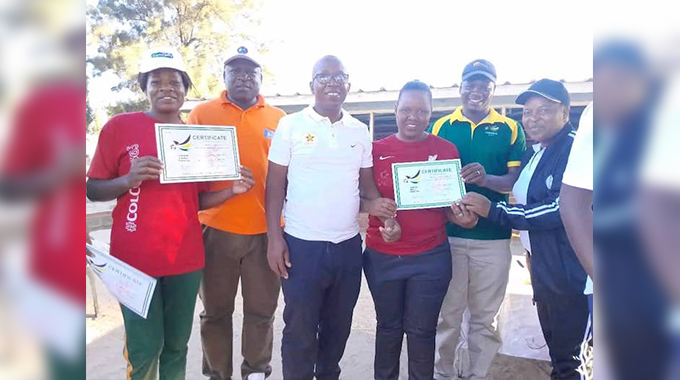Public-private partnerships drive economic growth

Nqobile Tshili
[email protected]
LANDS, Agriculture, Fisheries, Water and Rural Development Deputy Minister Vangelis Haritatos has said public-private partnerships (PPPs) are the engine that drives the country’s agriculture and economic growth.
Zimbabwe is one of the only two African countries to achieve wheat self-sufficiency last year following concerted efforts by Government and the private sector.
Speaking during the African Connect Symposium on the sidelines of the 63rd edition of the Zimbabwe International Trade Fair (ZITF) last Thursday, Deputy Minister Vangelis Haritatos said through partnerships in the sector, the country is producing groundbreaking output.

Lands Deputy Minister Vangelis Haritatos
He said the partnership with the private sector is in sync with Africa Agenda 2063 whose thrust is to make the continent a global powerhouse.
“In Zimbabwe, we deal with the private sector, individual farmers, line ministries, partners, agencies and the banking sector which funds agriculture. Last cropping season we had a major breakthrough as we produced more wheat than we have ever produced in the country since 1962 when wheat was introduced in the country,” said Deputy Minister Haritatos.
He said the country broke and shattered records when it produced 370 tonnes of wheat. “We didn’t do it alone as Government but collectively with the private sector,” said Deputy Minister Haritatos.
He said Government is gravitating towards a private sector-led economy by partnering with the private sector.
“We are also bringing in our millers and they are now contributing 40 percent as guided by policy,” he said.
Deputy Minister Haritatos said the partnerships with the private sector are making the agriculture transformation and rural development a reality by creating employment along the value chain and substituting imports.
He said this is informed by the Agriculture and Food Systems Transformation Strategy whose aim is to transform agriculture into a US$8,2 billion sector contributing 20 percent of GDP by 2025 in line with the vision of making Zimbabwe an upper middle-income economy.
Zimbabwe envisages to be an upper-middle-class economy by 2030 and agriculture is critical in the attainment of that vision.
“Fairly recently we announced the producer price. It took us seven weeks to announce this because of how transparent the process was. We brought in farmers, we brought in the private sector, the industry and we worked and came up with a producer price and we are moving forward,” said Deputy Minister Haritatos.
Government also finances the agriculture sector through the Pfumvudza/Intwasa Presidential Inputs scheme.
Meanwhile, the private sector has been called upon to invest in the rehabilitation of the country’s road infrastructure.
Speaking at the ZITF International Business Conference, Zimbabwe National Roads Administration (Zinara) chief executive officer Mr Nkosinathi Ncube said the private sector should invest in road rehabilitation as the funds they were collecting were not enough.
“One of the issues that has been topical is the issue of disbursement and we do appreciate that the funds are not enough. They will never be enough for everyone but that which we have as Zinara we are transparent about it. We can safely say today 88 percent of the funds that we collect from you go back to the roads,” he said.
Mr Ncube said it was worrying that most of the people seeking partnerships in the rehabilitation of roads are foreigners.
He said companies can recoup their investments by establishing toll gates in rehabilitated roads.
“Very few come from the industry, there have been some financial service companies that have come through to talk about the PPPs. We are saying there are so many opportunities in these PPPs,” said Mr Ncube.
“Let’s have the private sector investing in roads rehabilitation through PPPs and also coming through on technology for us to be able to provide quality roads.”
Mr Ncube called on companies contracted to rehabilitate roads to provide value for money as some of them were doing shoddy work resulting in roads being damaged after a short time.-@nqotshili












Comments